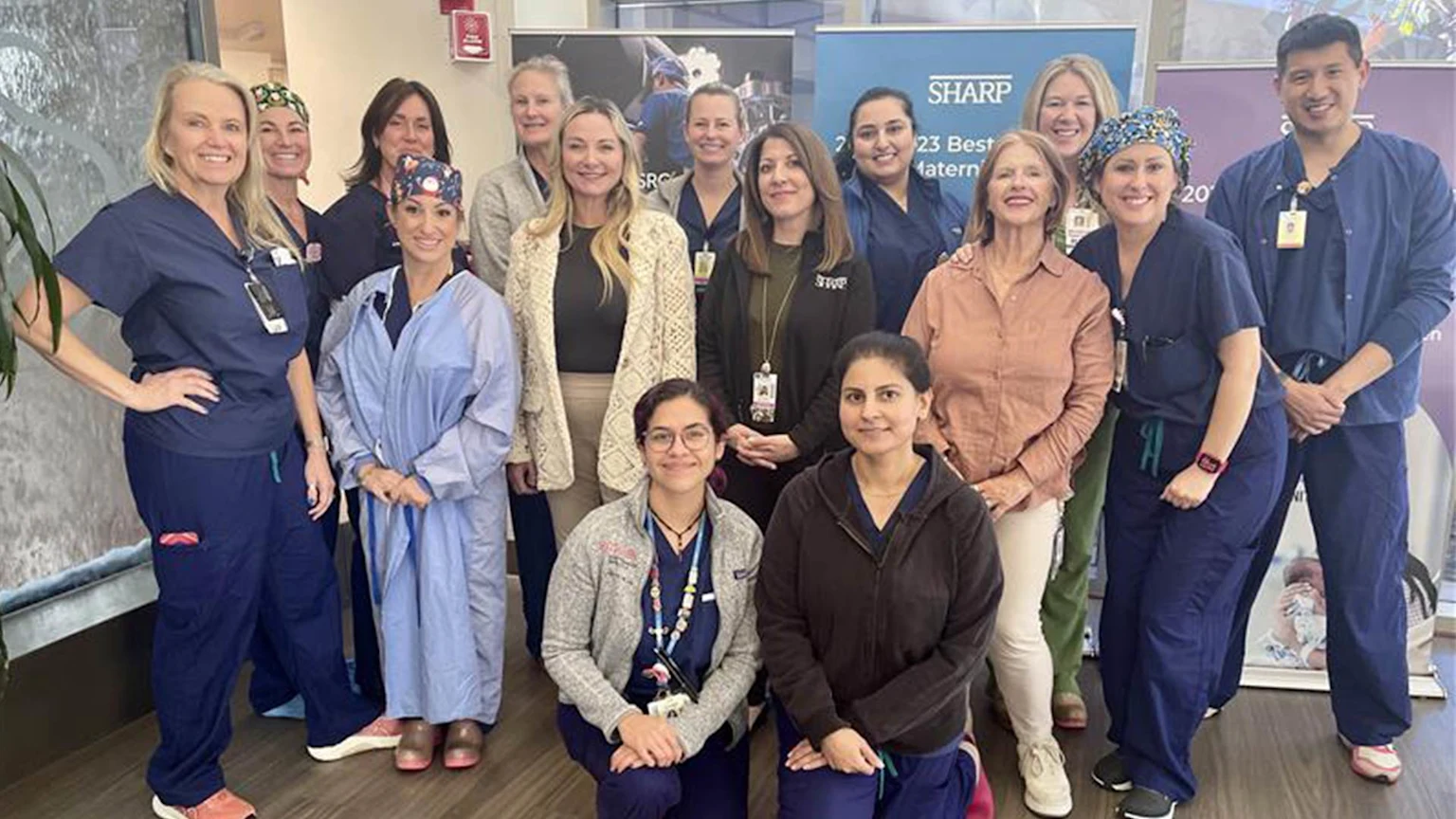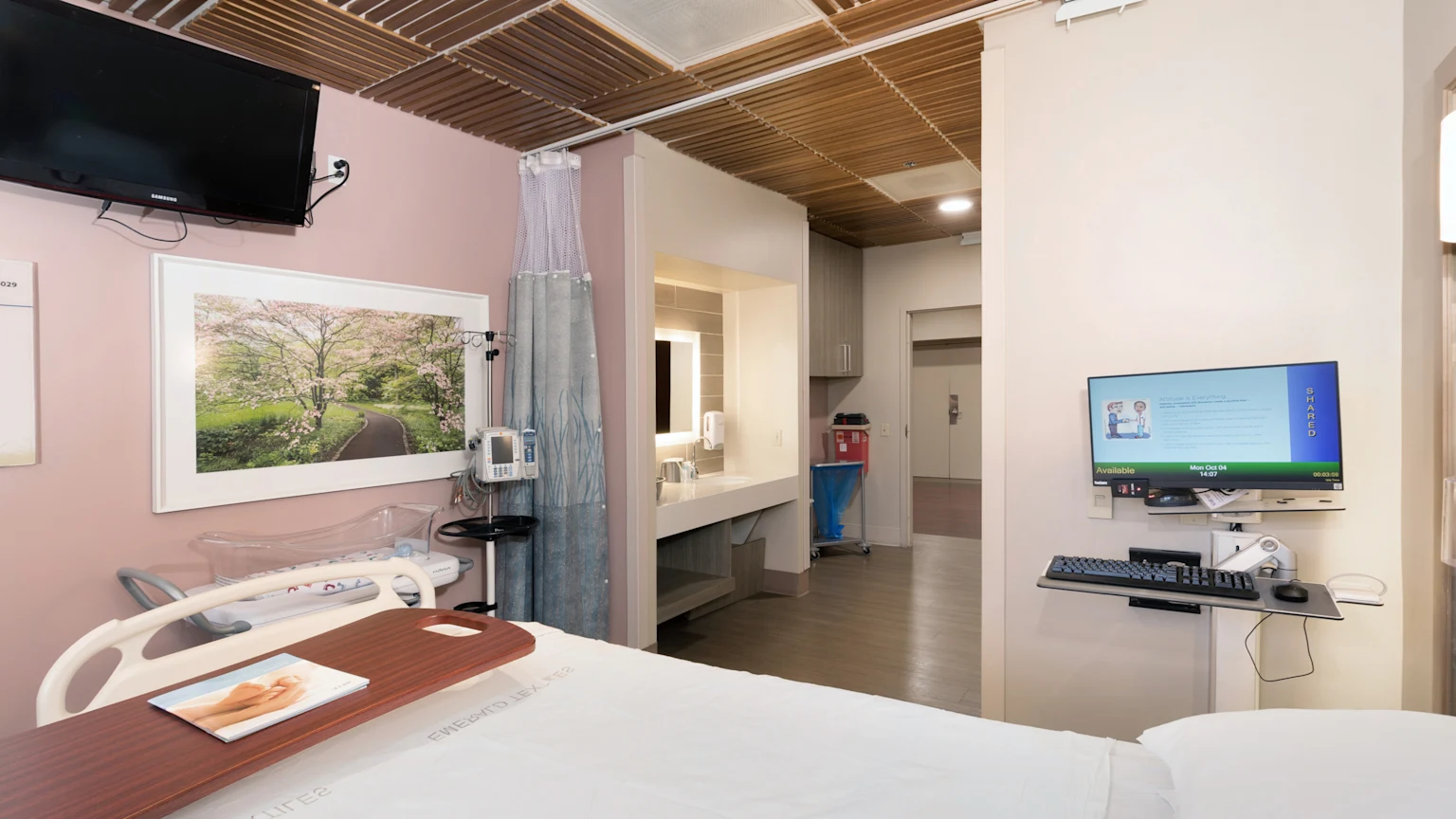
Menopause and the heart
Learn how menopause can increase a woman’s risk for cardiovascular disease.
Benjamin Franklin quipped, “Early to bed and early to rise makes a man healthy, wealthy and wise.”
While there’s conventional wisdom for people of all genders behind his advice, it takes more than a good night’s sleep and being a morning person to achieve good health. This is especially true for women who have distinct health care needs throughout their lives.
“Women often have their first hospital experience during childbirth,” says Kari Bernet, director of Women and Infant Services at Sharp Mary Birch Hospital for Women & Newborns Grossmont. “But their health care needs go beyond pregnancy and delivery.”
Sharp Grossmont Hospital for Women & Newborns delivers nearly 3,000 babies every year and earned national recognition on the U.S. News & World Report Best Maternity Hospital Care 2022-2023 list and Newsweek's Best Maternity Hospitals 2021 list for exceeding quality measures, such as low caesarian section and low newborn complication rates. However, Bernet says the goal is to provide comprehensive care for women of all ages.
“Beyond childbirth, women’s needs evolve, and we’re here to provide care that spans a lifetime,” Bernet says. “This includes health conditions that women may not even be aware they are at higher risk of developing.”

Sharp Mary Birch Hospital for Women & Newborns Grossmont team members specialize in multiple areas that meet the health needs of women throughout her life.
The heart of the matter
According to Bernet, women have historically been treated for health conditions based on data and research associated with men’s health. But because of the differences in how male and female symptoms present, women can go undiagnosed or untreated for certain conditions for years, possibly leading to serious long-term health consequences.
For example, many people consider heart disease primarily a men’s health problem. However, more women die of heart disease every year than men. Treatment for women is also regularly delayed and often misdiagnosed, given that many heart disease symptoms and early warning signs for women are different than they are for men.
Sharp Grossmont has made women’s cardiac care a priority and is the only hospital in San Diego with a dedicated women’s acute care cardiac unit strategically housed within the women’s hospital. In addition, the hospital offers a Postpartum Heart Health Clinic to help women who require cardiovascular care after giving birth for conditions, such as high blood pressure, that could develop into larger issues later in life.

Shown is one type of patient room at Sharp Mary Birch Hospital for Women & Newborns Grossmont where a woman recovering from a cardiovascular procedure might stay as she is cared for by a specialized team trained in women’s heart issues.
Women’s acute care goes beyond maternity care
The national demand for comprehensive women’s health care continues to grow. At Sharp Grossmont, for conditions such as endometriosis, fibroids, gynecologic or reproductive cancer, as well as hysterectomy procedures, the Women’s Acute Care Unit is equipped with the latest technology. This includes minimally invasive treatment options and advanced robotic surgery, resulting in quicker recovery times.
Care for women’s pelvic health disorders— from urinary incontinence to pelvic organ prolapse— are also treated. Research says 1 in 3 women develop a pelvic health disorder that can cause pain or other embarrassing symptoms and diminish quality of life. Yet many women suffer silently and do not seek treatment. Compassionate care from Sharp Grossmont experts with advanced training within this specialty, urogynecology, is available.
“The health care journey for women doesn’t end after giving birth,” says Dazel Brebner, manager of Sharp Grossmont Women’s Hospital Observation (WHO) Unit and Women’s Acute Care Unit. “It spans menopause and beyond. Our focus is high-quality care in a space catered to women’s needs, whether we’re helping someone experience the joy of childbirth or taking care of her heart.”
Shorter stays in the Women’s Hospital Observation Unit
The 16-bed WHO Unit houses patients for hospital stays ranging from several hours to several days. Here, women receive diagnostic care, triage, treatment and monitoring, depending on the diagnosis.
“One of the main advantages of this unit is its proximity to our OBGYN unit, which helps us bridge the gap between specialties and accommodate postpartum mothers who may have to be hospitalized longer,” says Brebner. “Mom and baby can board in the same room so that they don’t have to be separated, which we know improves outcomes.”
The WHO Unit also regularly accommodates patients with chest pain who may need additional diagnostics to rule out heart attack. And team members also monitor patients after other common procedures, such as gall bladder removals or appendectomies, which take place throughout the hospital and require observation and rest prior to discharge.
Additionally, for a more relaxing, healing experience, woman in the acute care and observation units receive a complimentary comfort pack. These include a soft eye mask, an aroma therapy inhaler, and other comfort items for a little extra pampering.
“Women often put their health on hold because they are too busy with work, family or other commitments,” says Brebner. “It’s important to give them the high-quality care that they deserve.”
Update: Andrew and Damaris welcomed a healthy baby girl into the world August. 5, 2024.
Learn more about women’s health; get the latest health and wellness news, trends and patient stories from Sharp Health News; and subscribe to our weekly newsletter by clicking the "Sign up" link below.
The Sharp Health News Team are content authors who write and produce stories about Sharp HealthCare and its hospitals, clinics, medical groups and health plan.

Kari Bernet is the director of Women’s and Infant Services for Sharp Mary Birch Hospital for Women & Newborns Grossmont.

Dazel Brebner is the manager of the Observation Unit and Women’s Acute Care Unit at Sharp Mary Birch Hospital for Women & Newborns Grossmont.

Our weekly email brings you the latest health tips, recipes and stories.